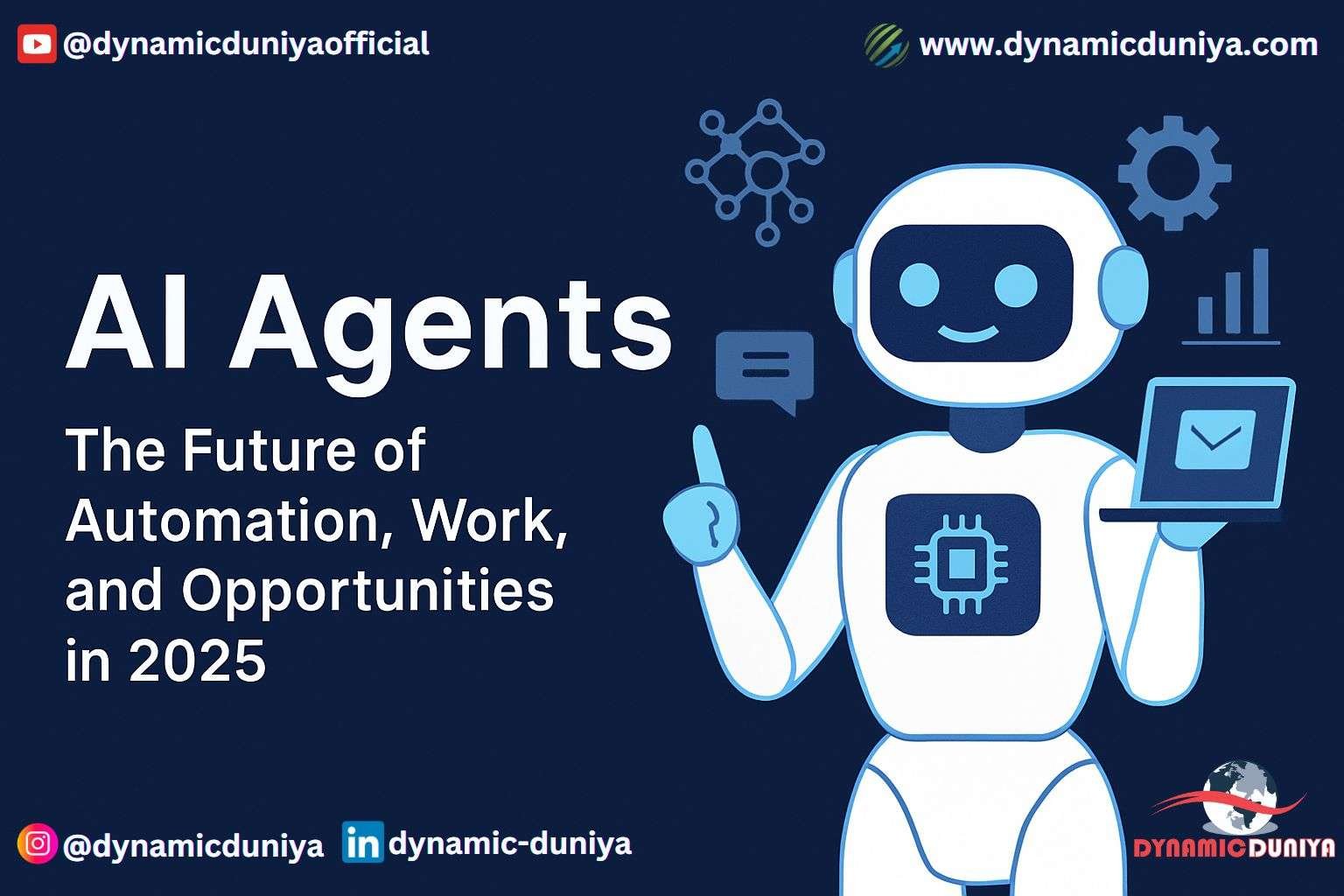Quantum AI – The Future of AI Powered by Quantum Computing

Introduction
Quantum AI is the convergence of quantum computing and artificial intelligence, promising to revolutionize problem-solving capabilities far beyond classical AI. By leveraging quantum mechanics, Quantum AI aims to enhance machine learning models, optimize large-scale computations, and break through computational limitations that exist today.
What is Quantum AI?
Quantum AI refers to the application of quantum computing principles to AI models, allowing them to process and analyze data at unprecedented speeds. Traditional computers rely on bits (0s and 1s), while quantum computers use qubits, which can exist in multiple states simultaneously due to superposition and entanglement. This drastically increases computational power, making Quantum AI highly efficient for complex problem-solving.
Why is Quantum AI Important?
- Unmatched Processing Power: Quantum AI can solve problems that classical AI takes years to compute.
- Enhanced Machine Learning Models: It enables faster training and optimization of deep learning models.
- Breakthroughs in Drug Discovery & Materials Science: Quantum AI accelerates simulations and optimizations in pharmaceuticals and material engineering.
- Better Financial Predictions: It helps financial institutions make more accurate risk assessments and predictions.
- Stronger Cybersecurity: Quantum cryptography strengthens data security with near-unbreakable encryption.
Real-World Applications of Quantum AI
- Healthcare & Drug Discovery – IBM and Google are using quantum computing to accelerate drug formulations.
- Finance & Risk Analysis – Banks like JPMorgan Chase use Quantum AI for risk optimization.
- Climate Modeling & Sustainability – Quantum AI is aiding research on climate change simulations.
- Automotive & Manufacturing – Companies like Volkswagen use quantum computing for traffic optimization.
- Cybersecurity & Cryptography – Google’s Sycamore processor is a breakthrough in quantum cryptography.
Roadmap to Mastery in Quantum AI
Step 1: Learn the Basics of AI & Machine Learning
- Gain expertise in Python, TensorFlow, and PyTorch.
- Understand core AI concepts like neural networks, deep learning, and reinforcement learning.
Step 2: Master Quantum Computing Fundamentals
- Learn about quantum mechanics, qubits, superposition, and entanglement.
- Explore quantum gates, circuits, and algorithms.
- Take online courses on platforms like Coursera, edX, and MIT OpenCourseWare.
Step 3: Get Hands-On with Quantum Programming
- Learn Qiskit (IBM Quantum), Cirq (Google’s Quantum Framework), and PennyLane (Xanadu’s Quantum AI).
- Experiment with cloud-based quantum computers like IBM Quantum Experience and Google’s Sycamore processor.
Step 4: Specialize in Quantum Machine Learning (QML)
- Study quantum-enhanced neural networks and hybrid classical-quantum models.
- Work on real-world problems using quantum computing-powered AI models.
Step 5: Contribute to Open-Source & Research
- Join IBM Q Community, Google Quantum AI, and Xanadu’s PennyLane projects.
- Publish research papers and work on industry projects.
Step 6: Apply for Jobs & Certifications
- Obtain certifications in Quantum AI & Computing from IBM, Google, and MIT.
- Apply for roles like Quantum AI Researcher, Quantum Software Engineer, and Quantum Data Scientist.
Companies Hiring Quantum AI Engineers
Quantum AI is rapidly gaining traction, and several top tech firms and research institutions are actively hiring professionals in this field:
- Google Quantum AI – Focused on developing scalable quantum algorithms.
- IBM Quantum – Offers cloud-based quantum computing services.
- Microsoft Quantum – Working on quantum computing with Azure Quantum.
- D-Wave Systems – Specializes in quantum annealing technology.
- Xanadu – Developing quantum photonics for AI applications.
- Rigetti Computing – Leading innovations in quantum computing hardware and software.
- Amazon Braket – A cloud-based quantum computing platform.
- JP Morgan Chase – Exploring quantum AI for risk modeling.
Future Demand & Salary Trends in India (2025)
Quantum AI is one of the most lucrative fields in tech, with salaries expected to grow as demand increases.
- Entry-Level Salary: ₹12-20 LPA
- Mid-Level Salary: ₹25-40 LPA
- Senior-Level Salary: ₹50 LPA and above
The Indian government and major tech giants are investing heavily in quantum research, making this a promising career path.
Conclusion
Quantum AI is poised to redefine artificial intelligence by leveraging the power of quantum computing. From accelerating scientific discoveries to enhancing AI capabilities, the fusion of these two technologies will shape the future of innovation. If you're passionate about AI and want to stay ahead of the curve, mastering Quantum AI is a game-changer!
Random Blogs
- Understanding SQL vs MySQL vs PostgreSQL vs MS SQL vs Oracle and Other Popular Databases
- Mastering Python in 2025: A Complete Roadmap for Beginners
- Data Analytics: The Power of Data-Driven Decision Making
- Exploratory Data Analysis On Iris Dataset
- Top 10 Blogs of Digital Marketing you Must Follow
- Understanding AI, ML, Data Science, and More: A Beginner's Guide to Choosing Your Career Path
- Avoiding the Beginner’s Trap: Key Python Fundamentals You Shouldn't Skip
- Datasets for Speech Recognition Analysis
- How to Start Your Career as a DevOps Engineer
- Generative AI - The Future of Artificial Intelligence
Prepare for Interview
- JavaScript Interview Questions for 5+ Years Experience
- JavaScript Interview Questions for 2–5 Years Experience
- JavaScript Interview Questions for 1–2 Years Experience
- JavaScript Interview Questions for 0–1 Year Experience
- JavaScript Interview Questions For Fresher
- SQL Interview Questions for 5+ Years Experience
- SQL Interview Questions for 2–5 Years Experience
- SQL Interview Questions for 1–2 Years Experience
- SQL Interview Questions for 0–1 Year Experience
- SQL Interview Questions for Freshers
- Design Patterns in Python
Datasets for Machine Learning
- Awesome-ChatGPT-Prompts
- Amazon Product Reviews Dataset
- Ozone Level Detection Dataset
- Bank Transaction Fraud Detection
- YouTube Trending Video Dataset (updated daily)
- Covid-19 Case Surveillance Public Use Dataset
- US Election 2020
- Forest Fires Dataset
- Mobile Robots Dataset
- Safety Helmet Detection
- All Space Missions from 1957
- OSIC Pulmonary Fibrosis Progression Dataset
- Wine Quality Dataset
- Google Audio Dataset
- Iris flower dataset
- Artificial Characters Dataset
- Bitcoin Heist Ransomware Address Dataset






